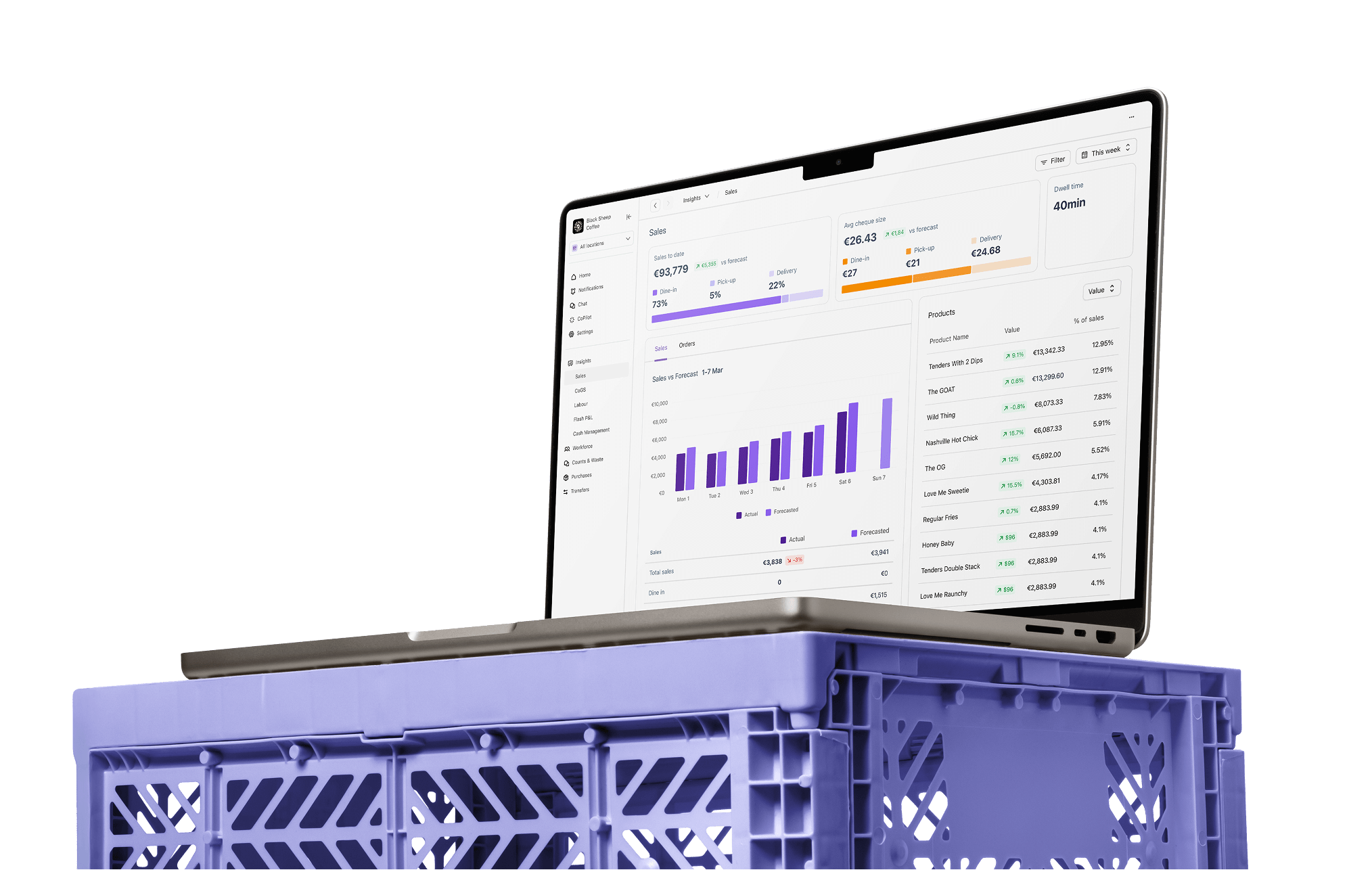How frequently should a kitchen audit take place? Your questions answered
Owning a food business comes with a lot of regulations you need to comply with. This includes having your kitchen in tip-top shape ahead of inspections from the Environmental Health Organisation.
3 ways to cultivate a strong company culture in your restaurant
In this blog, we’ll take a look at kitchen audits, how frequently they should be conducted, and why they're an important part of workforce management for restaurant and hospitality businesses…
What is a kitchen audit?
A kitchen audit is a close inspection of a hospitality or restaurant establishment. It helps the owners of these businesses understand how well their restaurant is complying with food safety regulations and internal standards.
A trained auditor or other internal employee will assess aspects of the kitchen, such as cleanliness, proper food handling and storage, as well equipment maintenance and how well staff are trained. They’ll also need to ensure that the business has the correct documentation to prove that they can properly identify risks and guarantee the safety of their customers.
Read more: How to increase restaurant profitability by building customer retention
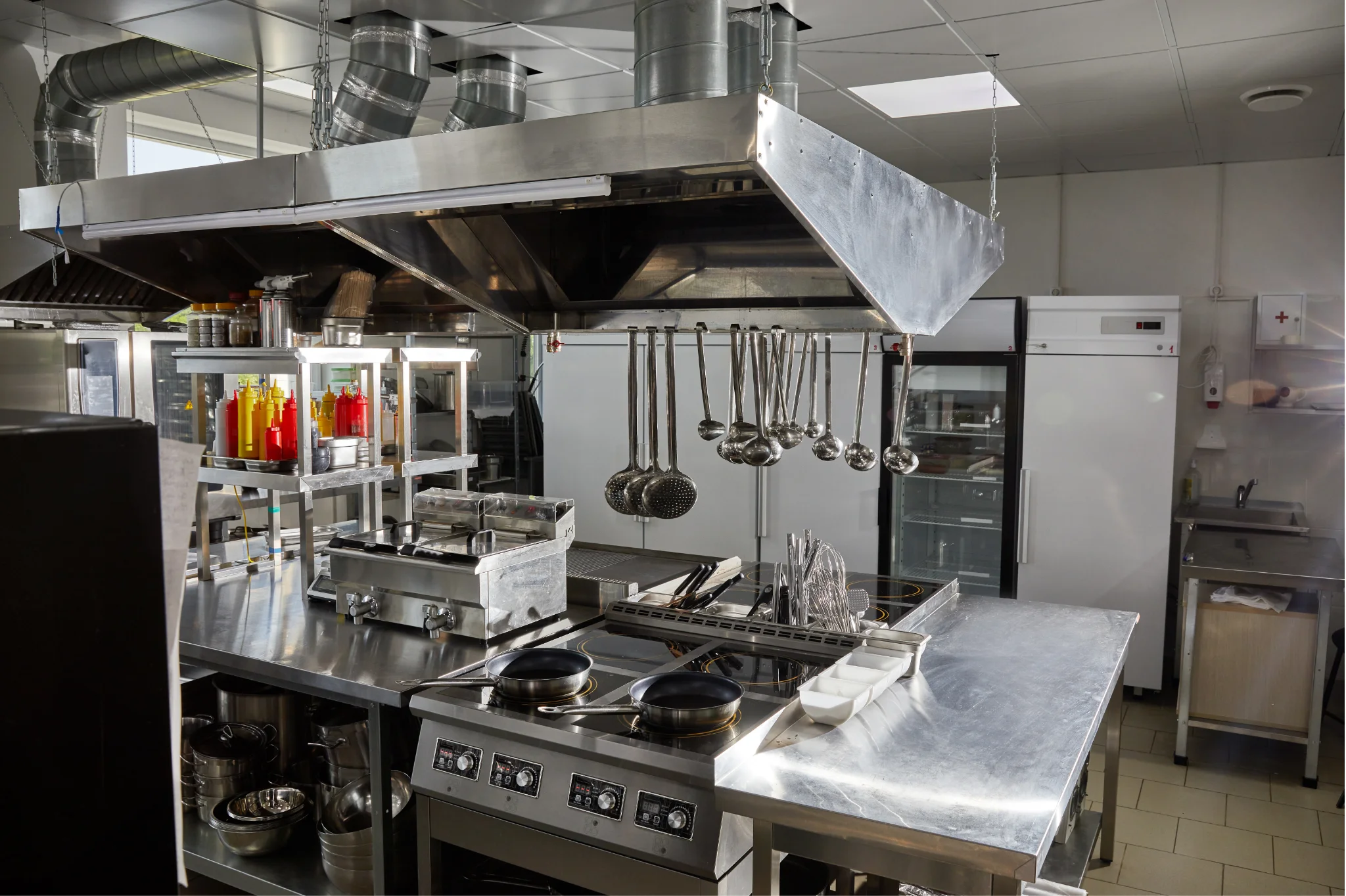
What should I look out for when conducting a kitchen audit?
Food handling & preparation
When auditing your kitchen, you need to check that personal hygiene practices are being upheld by employees. This includes frequent and proper handwashing, as well as wearing certain uniforms such as gloves and hairnets/hats - to prevent germs from spreading.
It’s also important to make sure cross-contamination is being prevented, ensuring raw and cooked foods are being stored and prepared separately. Maintain temperature control and proper cooking methods to store food, and label it properly - so you can ensure allergens are managed.
Premises & environment
Keeping the kitchen clean, sanitised, and in good repair will help uphold an environment with high levels of hygiene. Ensure you have pest control measures in place, as well as proper waste disposal.
All employees should ensure appliances are clean and well maintained to prevent any breakdowns or risk of contamination.
Food safety & management
Any procedures you have regarding food safety and management should be in place and well documented, including cleaning schedules.
All employees should be trained on food hygiene, allergen awareness, and safe food handling practices so they can avoid public health risks.
Read more: How to conduct a restaurant performance review and why it’s important
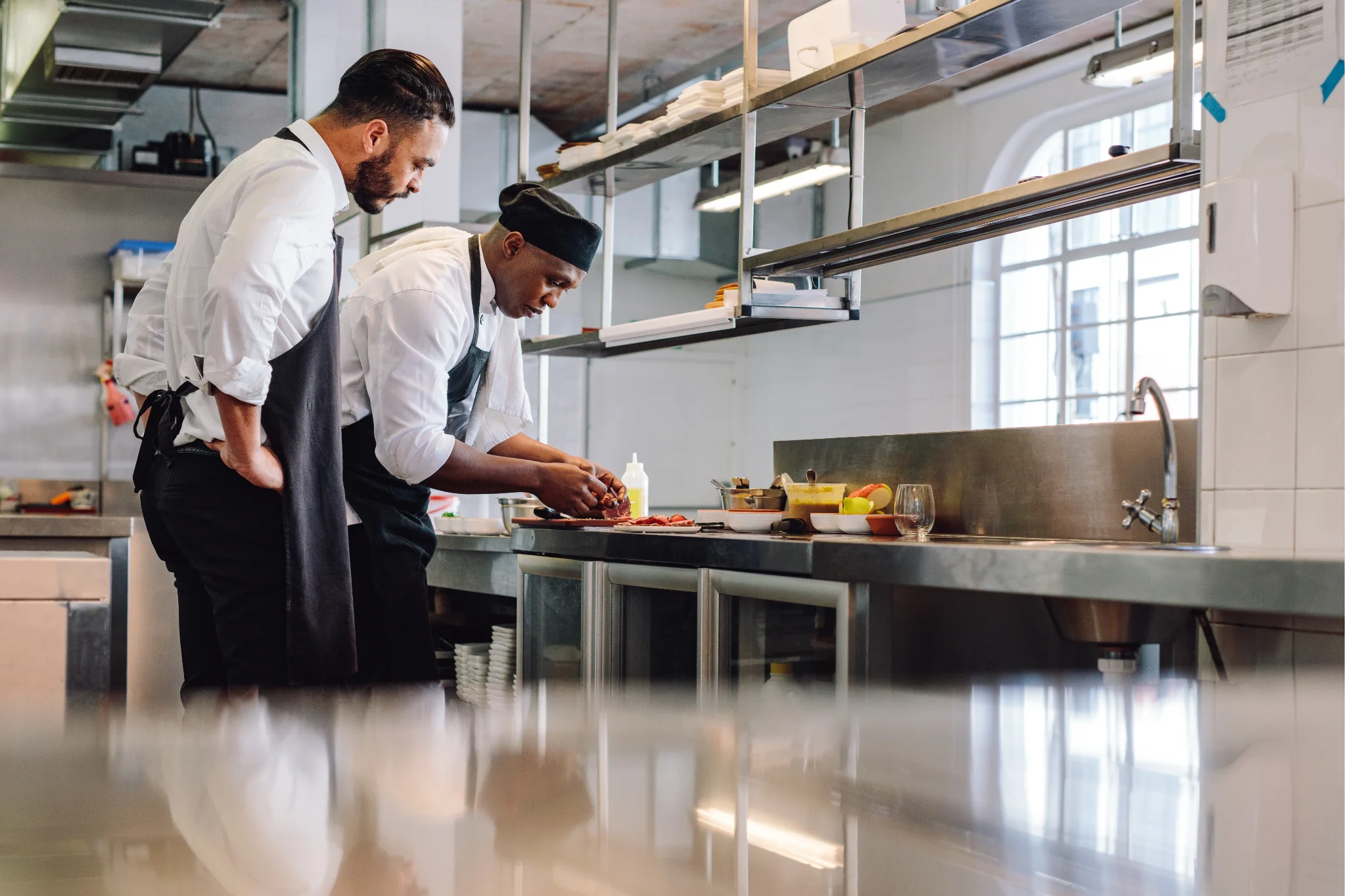
Why are regular kitchen audits important?
Ensuring food safety & preventing contamination
By auditing your kitchen frequently, you can identify risks before they become serious problems. Ensuring that raw and cooked foods are kept separate, that your staff follow proper hygiene practices, and that your appliances are maintained, will all help to protect customers and the reputation of your business.
Regulatory compliance & avoiding inspections or fines
If you check your kitchen frequently to make sure that everything is in order, you will meet the compliance standards set out by the Food Standards Agency (FSA), and therefore avoid penalties that can be given for restaurant businesses with poor practices.
Maintaining high standards for customers & staff morale
Regular auditing encourages staff to maintain standards all-year round, and not just for inspections. Bolstering a culture of accountability and professionalism, these standards will ensure the protection of customers, whilst also ensuring staff are happy working in an environment that prioritises their wellbeing.
Read more: 3 ways to cultivate a strong company culture in your restaurant
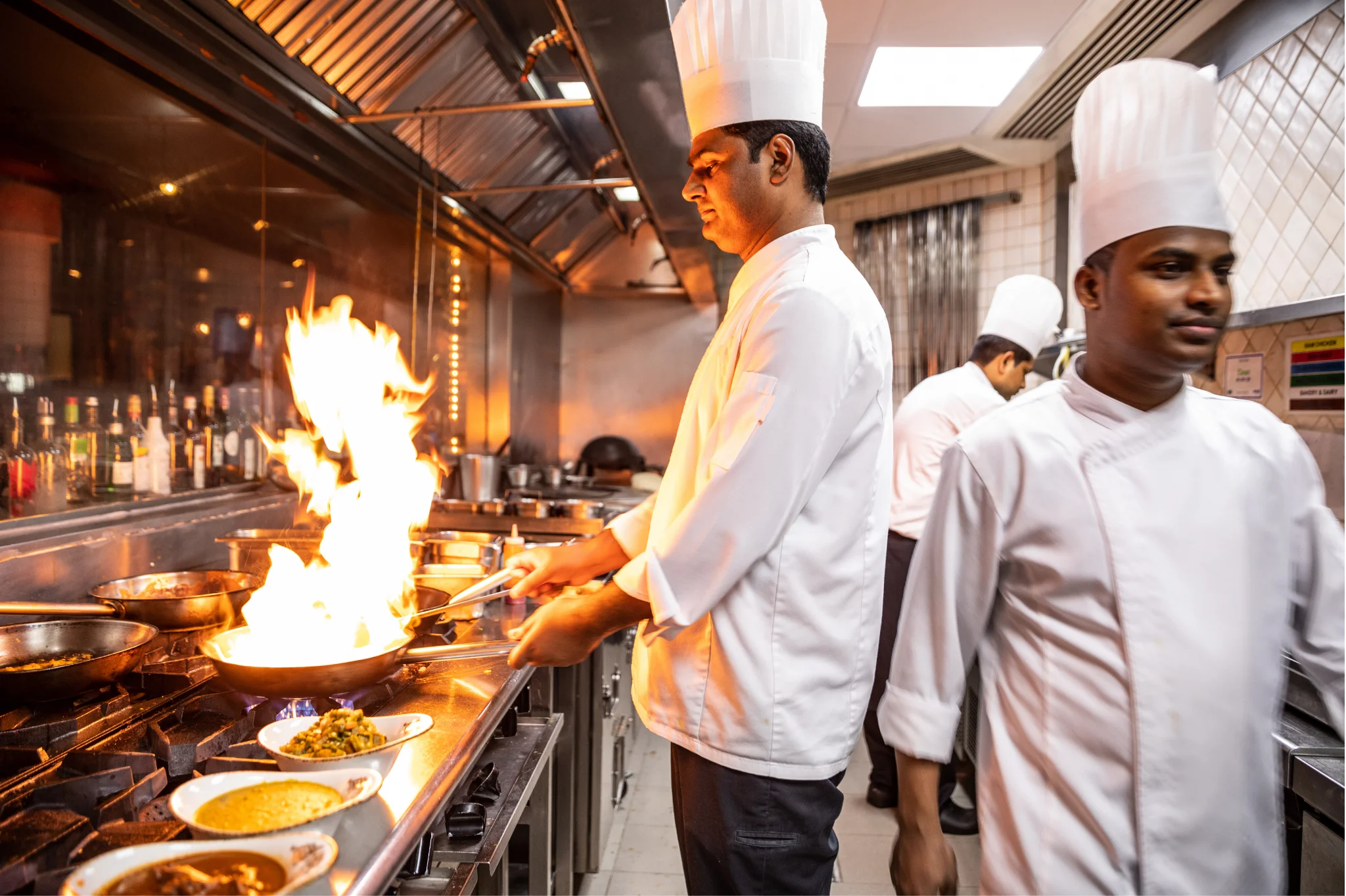
How frequently should I do my kitchen audits?
Every restaurant business will be different when it comes to the frequency of their kitchen audits. For example, this will depend on:
- Size of kitchen/volume of food production: If you have a bigger kitchen and a higher volume of food production, you should be conducting kitchen audits on a regular basis. This is because you have more room for risks to occur, as well as more appliances that need maintenance and control.
- Type of food prepared (risk level: raw meat, ready-to-eat, etc.): If you frequently use raw meat in your business, you’ll need to conduct audits of your kitchen more frequently, to ensure that proper food handling is being maintained.
- History of compliance (previous audit findings, recurring issues): If you’ve rated poorly by FSA officers before, it’s a good idea to conduct regular audits of your kitchen to ensure previous issues have and are being addressed.
- Level of staff training & turnover: If you have a high staff turnover, employees will need to be trained on a more frequent basis. Conducting regular audits means you can get an idea of how well trained your staff are at maintaining hygiene standards.
Work smarter. Run smoother.
Ready to simplify your restaurant’s day-to-day? Nory makes it easy to manage your team and keep everything running effortlessly with its hospitality management software. Reach out now to arrange your complimentary demo.
How frequently should a kitchen audit take place: FAQs
What if I disagree with my score?
If you disagree with the score you were given at your FSA inspection, you should first try to understand what led to you receiving that score. Get in touch with the food safety officer at your local authority and request that they explain why you received a lower rating. This will help you to understand whether or not the score is fair and will either encourage or discourage you from appealing their decision.
If you still want to appeal, you must do so within 21 days of receiving your rating. After you make the request, you will be informed of your result within another 21 days of the appeal being received by your local authority.
Can I request a revisit?
Yes, you can request a revisit from the FSA officer at your local council, so they can reassess the rating you received. However, this service is chargeable; requiring a non-refundable fee after you complete a revisit request form.
Next, you’ll have to provide evidence that you have made the necessary improvements to be considered for a revisit. If you have provided evidence of sufficient improvements, the FSA will conduct an unexpected visit within the next three months.

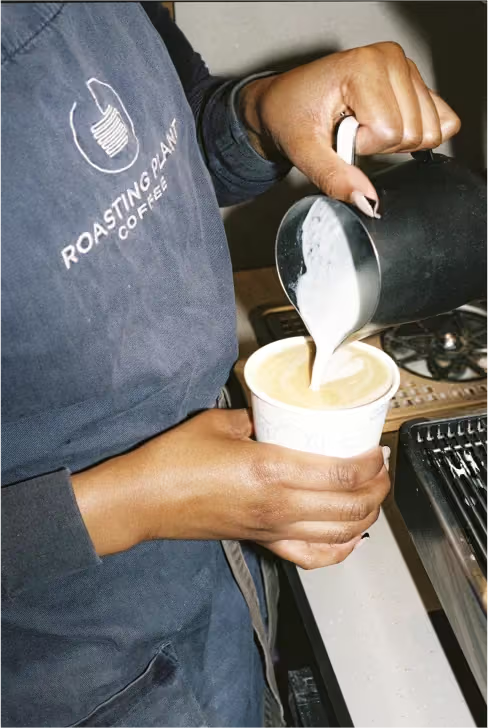
.webp)
.webp)


